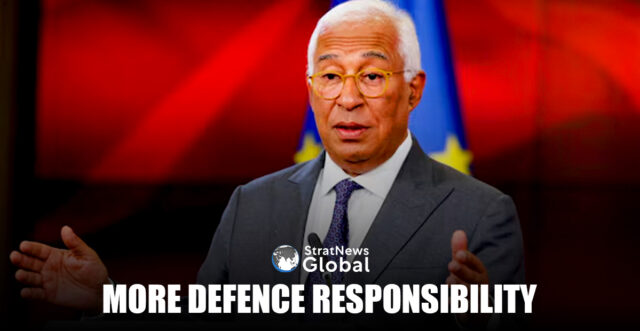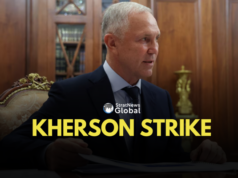The key issue in EU-U.S. relations is Europe’s need to assume greater responsibility for its own defence, while trade tensions are merely a distraction, EU leaders’ chairman Antonio Costa said on Thursday.
Speaking to reporters ahead of talks with U.S. President Donald Trump at the Group of Seven leaders meeting in Canada next week and a NATO summit in two weeks, Costa said the 27-nation European Union should focus on the main issue.
“The main issue is the United States wanting to rebalance the burden sharing on European defence. This is the real main issue,” Costa said.
“The United States has legitimately decided that they have new strategic priorities and we need to agree with the United States how during the coming years we can rebalance the burden-sharing on European defence in the most fair and effective way with very important concerns: never, never, never undermine the deterrence effect of Article 5 of the NATO Treaty,” Costa said.
Defence Boost
European leaders have been scrambling to boost their defences against a potential Russian attack after the Trump administration made clear, since it took office, that the U.S. was no longer willing to be the main guarantor of Europe’s security.
At the same time, the EU and the U.S. are in negotiations on rebalancing their trade relationship, with Washington pushing to reduce its trade deficit with Europe in trade in goods.
Washington has already imposed 50% tariffs on EU steel and aluminium and 25% tariffs on cars and car parts, in addition to a 10% tariff on most other goods. The EU is preparing its own retaliation package.
“We need to …focus on the main issue: how to rebalance the burden sharing on European defence. If we start creating other kinds of problems between us, we are only creating irritants, losing the focus on the main issue,” Costa said.
NATO leaders — which includes 23 European Union countries — are to discuss on June 24-26 whether to boost defence spending to 5% of GDP from the current 2% following a call for such higher spending from Trump.
Costa said that a few years ago, boosting European defence capabilities was seen as undermining NATO, but the same action now was seen as the best way to preserve the transatlantic relationship.
He also said the amounts spent on defence were secondary to how they were spent, and the best option was for EU countries to coordinate their efforts and spending to create a collective defence capability.
“Whether we need to increase spending to 3.5%, 5%, etc, is not the question, because we are not looking at a magic number. We need to define …what are the capabilities we need to build, what are the gaps we need to fill, and how we could invest in these capabilities in the coming years,” Costa said.
“Nobody is talking about a European army. What we need is to have one, very robust and effective, deterrence and collective defence system. And that’s why what we need to do is invest together … based on the plans approved by NATO,” he said.
(With inputs from Reuters)





